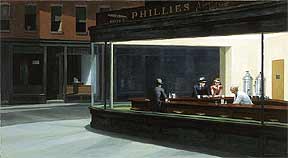I'm researching and writing a chronicle on my mother's family history in Salina, Kansas. Just starting it. I have a newspaper clipping on the death of my great grandfather written in 1910 or thereabouts. I have copied it here. How writing styles have changed..........this has run on sentences run amok. I guess the newspaper folk in Salina Kansas in 1910 considered themselves lucky finding anyone who could write at all............
as written --
Andrew Stockenberg, who died three weeks ago of leakage of the heart and dropsy, at his home on south Connecticut, was known as far back as forty years ago as the neatest cobbler on the plains, and drew many cowboys and not a few Indians to his little shop on south fifth street to have their chaps and gauntlets mended and their shoes and boots made as well as the Indian’s moccasins. He was known for miles around as the best man for the cowboys to have to fix their leather upholstery because of his reputation of his neatness.
At that time even an occasional buffalo would come grazing around the small village of Salina, almost into the main streets as if in search of the neatest cobbler to mend its boots which were worn and cut on the sand swept prairies.
Indians were numerous who visited the little shop either in search of new moccasins or repairs for the old ones. And all liked and greeted with good cheer the neatest of cobblers who made their leather goods look as good as new, their Indian moccasins soft and pliable and artistically trimmed, with new designs on the cowboy’s high stout boots which fit so well, and soft new leather well arranged in the seats of their well worn chaps.
As time went on and the buffalo disappeared and the Indians became a rare sight, and the cowboys fewer, the men up and down the dusty wooden shack lined street came more often to the little shop in search of the neatest of cobblers to see if he could make for them a couple of pairs of shoes. Many times during those years the cobbler toiled far into the night to supply the demand for his handiwork in shoes and boots. No “boughten” boots for those men with this cobbler so willing to work, who could make such soft boots that fit so well and wore so long. And no patches seemed as nice as those put in by this cobbler, none mended so neatly into the worn places of the boot or shoe and none had so few rough spots.
Through all but the last six years of the forth seven years of his life in Salina, Mr. Stockenberg continued as a business this work of making shoes, and in these latter years many prominent business men would visit his shop that was moved to to his home on South Connecticut to have him make their shoes.
Mr. Stockenberg was a foreman in a big store factory in Chicago and bought a farm although he had never before seen it out near the Salemsborg church.
He had made up his mind to leave Chicago and farm, in peace and quiet the rest of his life, so leaving his family he came to Salina and went out to his farm, but at the close of the first day declared it was too much peace and quiet and came back to the small village that was known as Salina. Then he decided to open a shoe shop, after listening to the arguments of the cowboys and residents regarding the need of one. His family, composed of his wife, two sons and two daughters, joined him although lacking considerably in enthusiasm of the wild nature of the country.
it's always something


